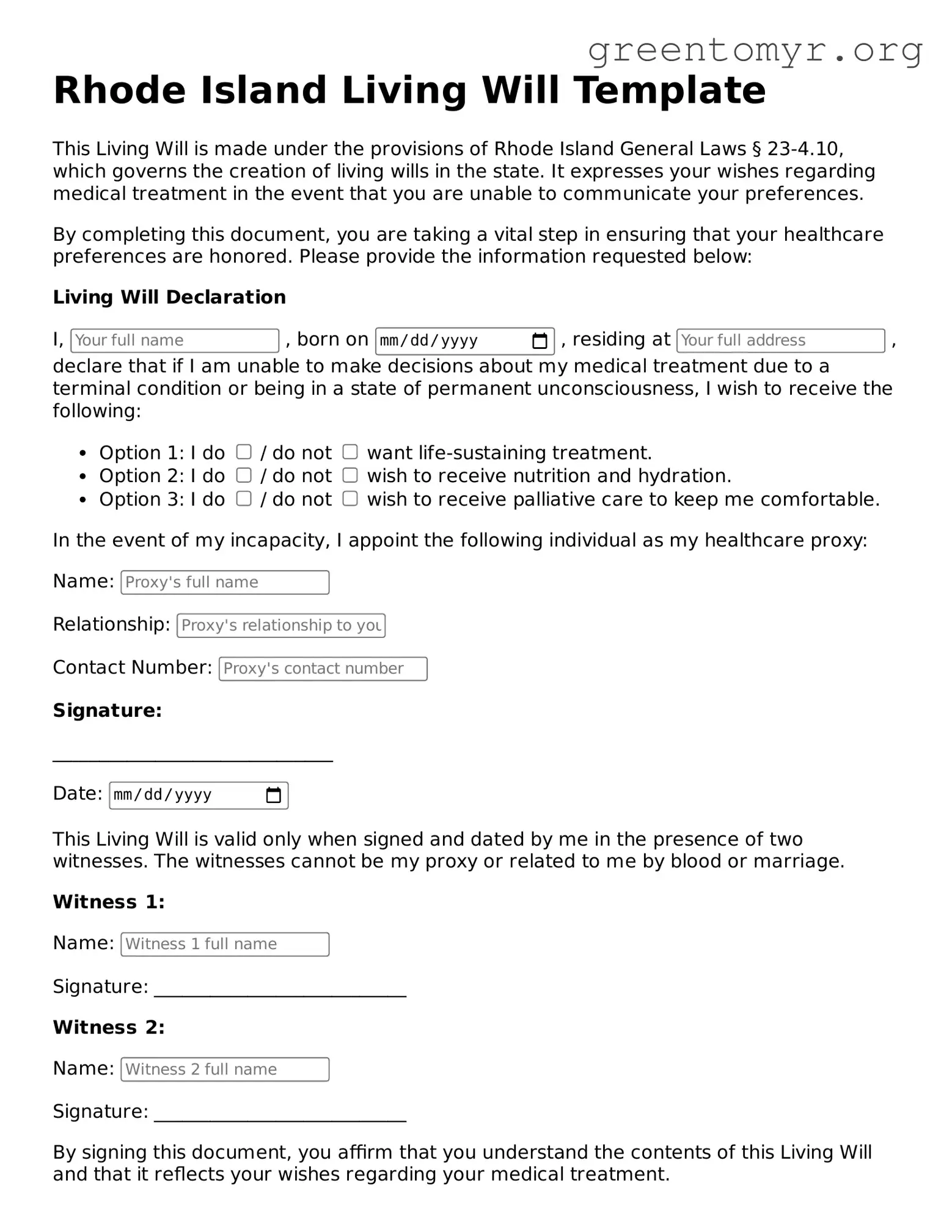Living Will Form for the State of Rhode Island
A Rhode Island Living Will form is a legal document that allows individuals to outline their preferences for medical treatment in situations where they cannot communicate their wishes. This form serves as a vital tool for ensuring that personal healthcare choices are respected. Take control of your healthcare decisions by filling out the Living Will form today; click the button below to get started.
